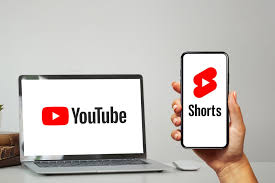In the realm of artificial intelligence (AI), ChatGPT has gained significant attention for its ability to generate text that resembles human conversation. This has made it a popular tool across various industries, including digital marketing. However, a recent study raises concerns about ChatGPT’s capacity to generate and understand humor, a crucial element in engaging and connecting with audiences. German researchers Sophie Jentzsch and Kristian Kersting conducted a study to explore ChatGPT’s humor capabilities, examining its originality, understanding, and detection of jokes.
The Question of Originality: Recycled Laughter
One of the key findings of the study conducted by Cornell University was the lack of originality in ChatGPT’s generated humor. The researchers discovered that over 90% of the jokes produced by ChatGPT were the same 25 jokes. This recurrence suggests that ChatGPT did not generate these jokes organically but rather learned and memorized them during its training. The study raises concerns about the model’s ability to create truly original humor.
In their report, the researchers listed the top 10 most frequently generated jokes by ChatGPT. These jokes included classics such as “Why did the scarecrow win an award? Because he was outstanding in his field.” While a small number of unique responses were observed, these were mostly combinations of elements from different known jokes and often lacked coherence.
Explaining the Joke: Beyond Surface Humor
Another aspect the researchers examined was ChatGPT’s capacity to explain humor. While the model could deconstruct and explain stylistic elements like wordplay and personifications, it struggled with more unconventional jokes. Additionally, ChatGPT lacked the ability to recognize when something is not funny or lacks a valid explanation, often providing plausible-sounding explanations even for unfunny jokes. This limitation poses challenges for digital marketers aiming to create nuanced and context-dependent humor.
Joke Detection: Decoding the Punchline
The research team also evaluated ChatGPT’s ability to detect humor. While the model could correctly identify jokes based on structure, wordplay, and topic, it failed to classify a sentence as a joke if it only possessed one of these characteristics. This highlights the model’s reliance on learned patterns and its lack of a comprehensive understanding of humor.
Implications for Digital Marketers
The limitations of ChatGPT in generating original humor have significant implications for digital marketers. While the model can replicate pre-learned patterns to create jokes, its originality is limited. Marketers relying solely on AI-generated humor may struggle to create engaging and truly unique content. Understanding these limitations is crucial for marketers looking to leverage AI in their content strategies.
Although ChatGPT’s humor has its limitations, it does not negate the system’s capabilities entirely. Marketers can still utilize AI-generated content for various purposes with proper awareness of its limitations. However, the study highlights that human creativity remains irreplaceable, particularly in the realm of humor.
Digital marketers should consider these findings when using AI models like ChatGPT to generate engaging, humor-infused content. While AI can serve as a valuable tool, it should not be solely relied upon for creating original and contextually relevant jokes. Human creativity, understanding, and wit are still essential for delivering humor that truly resonates with audiences.
The Future of Computational Humor
The research conducted by Jentzsch and Kersting focused on ChatGPT, but they have plans to extend their investigations to newly released AI models such as LLaMa and GPT-NeoX. These future studies promise to provide further insights into the world of computational humor and the capabilities of AI models in generating original and contextually relevant jokes.
In conclusion, while ChatGPT shows promise in replicating and explaining certain types of humor, its limitations in generating original jokes and understanding humor beyond learned patterns pose challenges for digital marketers. Recognizing these limitations and incorporating human creativity will be essential for creating engaging and authentic humor-infused content in the digital landscape.
Additional Information:
- Primary Keyword: ChatGPT’s Humor
- Secondary Keywords: AI-generated humor, digital marketers, originality, understanding humor, limitations, computational humor
- Tone of Voice: Informative and authoritative


No comments! Be the first commenter?